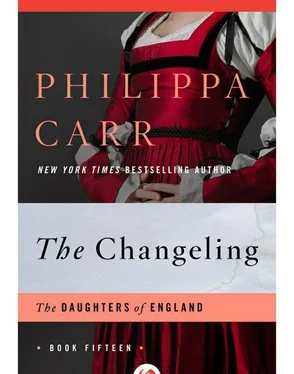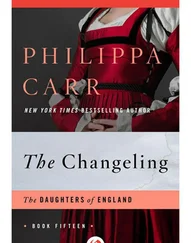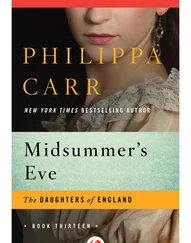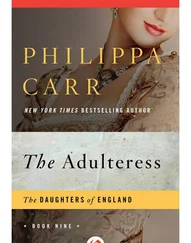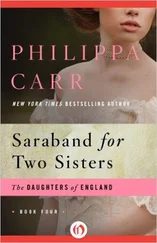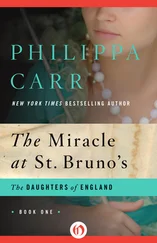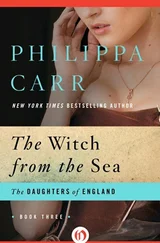I was proud to belong to Cador Folk as the family were respectfully referred to in the Poldoreys.
All this was mine—and there was the London home, too. The tall narrow house which my mother and I shared with the servants … not many of them. There were of course my governess, Miss Brown, who would have been horrified to be called a servant, then Mr. and Mrs. Emery; she was cook and housekeeper and he a man of all work who tended our tiny garden; and there was a housemaid Ann and a parlormaid Jane.
It was an intimate household. My mother was not one to stand on ceremony, and I think all the servants were devoted to her. They felt themselves to be part of the family. There was not that impenetrable barrier between up and below stairs as there was in larger establishments such as that of Mr. Benedict Lansdon and my Uncle Peter and Aunt Amaryllis. Not that they were really my uncle and aunt; they were not even my mother’s. They were very old and the family connection went back some generations. Benedict Lansdon was Uncle Peter’s grandson, so there was even a link with him.
Uncle Peter, though very old, was an important man; he was rich and had lots of interests—some of them rather mysterious; but he was quite an awe-inspiring figure. His wife, Aunt Amaryllis, was one of those very feminine women who seem endearingly helpless and somehow hold the family together. Everyone loved her—including myself.
They entertained lavishly, although Uncle Peter’s daughter Helena and his son-in-law Martin Hume, the well-known politician, were often hostess and host at the functions held at their home. It was an exciting family to belong to.
I remember the incidents from what I thought of afterwards as the Last Summer, for it was after Christmas of that year that I had my first inkling of what was to come.
My mother and I had arrived in Cornwall. Pedrek had travelled down with us and the days seemed to have been spent between Cador and Pencarron Manor. Both Pedrek and I had to do lessons for a certain number of hours each day and these were allowed to coincide by an accommodating Miss Brown and Mr. Clenham who was Pedrek’s tutor. Pedrek was to go to school the following year so that in itself would bring change. We rode a great deal but were not allowed to go out on our own. There always had to be an adult with us which was rather restricting. So we spent a good deal of time in the paddock practicing jumping and showing off our equestrian skill to each other.
On this occasion we were with my mother and, as it seemed on many occasions, we found ourselves at St. Branok’s Pool.
I was fascinated by it. So was Pedrek. It was an uncanny spot with the willows hanging over it. The still waters of the Pool were said to be bottomless, and it had a reputation for being a place to avoid after dark. I suppose that was why it attracted me. My mother always appeared to be fascinated by it.
As usual we tied up our horses and stretched ourselves out on the grass leaning against the boulders which protruded from the ground in certain places.
“They could be the stones of an old monastery,” my mother had told us.
We had heard the story many times of the bells which were reputed to ring if a disaster threatened. They were at the bottom of the pool according to the legend.
Pedrek, who was very logical, said that if they were at the bottom, the pool could not be bottomless, to which my mother replied that flaws could often be found in most legends if one tried hard enough.
“I don’t want flaws to be found,” I told them. “I like to think it is bottomless and that the bells are there all the same.”
“A monastery was destroyed by floods because the monks turned from the path of righteousness,” explained my mother.
“There are lots of righteous people about here,” I commented. “There is old Mrs. Fenny on the quay who watches everything that goes on and thinks everyone but herself is heading for hell fire. And there’s Mrs. Polhenny who goes to church twice on Sundays and tries to make her daughter Leah as holy as she is, so that the poor girl never gets any fun.”
“People are very strange,” said my mother, “but you have to be tolerant with them. ‘Cast the beam out of your own eye …’ ”
“ You sound like Mrs. Polhenny now, Mama,” I said. “She’s always quoting the Bible, but she would be sure she hasn’t the slightest speck in her eyes.”
Dreamily I would stare at the pool and lure her to tell me the story, which she had told so many times of how, when I was a little girl, I had been taken away by Jenny Stubbs who still lived in the cottage near the pool; they had thought I had wandered into the water because one of my toys was found in the brink.
“They dragged the pool,” said my mother, her eyes wide as though she were looking into the past. “I shall never forget it. I thought I had lost you.”
She was too emotional to proceed, and as I loved the story I could not hear it often enough: how Jenny Stubbs had rung toy bells hoping to drive them away because she had me hidden in her cottage, how she had cherished me and believed I was the little girl whom she had lost.
Pedrek liked the story too. He had heard it often enough before but he was never impatient when it was repeated. He knew that I liked to hear it over and over again, and he was always careful not to hurt other people’s feelings, even when he was a boy.
What I remember of that occasion is that while we were talking Jenny Stubbs herself, the main character in the story, came out of her cottage and walked to the edge of the pool.
She did not see us at first and she was singing to herself. She had a rather high, reedy voice which sounded uncanny on the stillness of the air.
My mother called: “Good afternoon, Jenny.”
She turned sharply, as though startled. “Good afternoon to ’ee, Ma’am,” she said.
She stood facing us, her back to the pool. The light breeze ruffled her fine fair hair and she looked fey—someone who is not quite as others are.
“Are you well, Jenny?” asked my mother.
“Yes, thank ’ee, Ma’am. I be well.”
She walked slowly towards us. Her eyes scanned Pedrek and myself and I expected to see some interest in her for the child she had once stolen and cherished. But there was no sign that she was any more interested in me than she was in Pedrek. My mother said later that she would have forgotten that it had ever happened. We had to remember that Jenny was strange … not as other people; she lived in a world of her own creating; she must do to have taken someone else’s child and thought it was her own.
She came and stood near us. She was gazing at my mother and it was easy to see that she drew some comfort from her presence.
“I be expecting this Lammas,” she said.
“Oh Jenny …” replied my mother, and added quickly: “You must be very happy.”
“ ’Tis a little girl, I be sure of that,” said Jenny.
My mother nodded and Jenny turned away; walking towards her cottage, she started to sing in her strange unworldly voice.
“It is very sad,” said my mother, when she was out of earshot. “She can never forget that she lost her baby all those years ago.”
“That baby would be the same age as I am now,” I said, “because she thought I was her baby once.”
My mother nodded. “And now she thinks she is going to have another. It is not the first time she has thought this.”
“What happens when she doesn’t?” I asked.
“It is hard to know what goes on in her poor clouded mind. But she does know how to look after a baby. She was wonderful with you during the few days she had you. We couldn’t have looked after you better.”
“But I wanted to come home, didn’t I? When you found me in her cottage I ran to the door, calling for you to take me home.”
Читать дальше
